‘The Lord Of The Rings: The Rings Of Power’ Showrunners Attempt To Answer Why Galadriel Acts Too Masculine And Why She Went To Númenor

The Lord of the Rings: The Rings of Power showrunners recently addressed a number of questions regarding the series’ canon-breaking lore and specifically addressed their depiction of Galadriel.
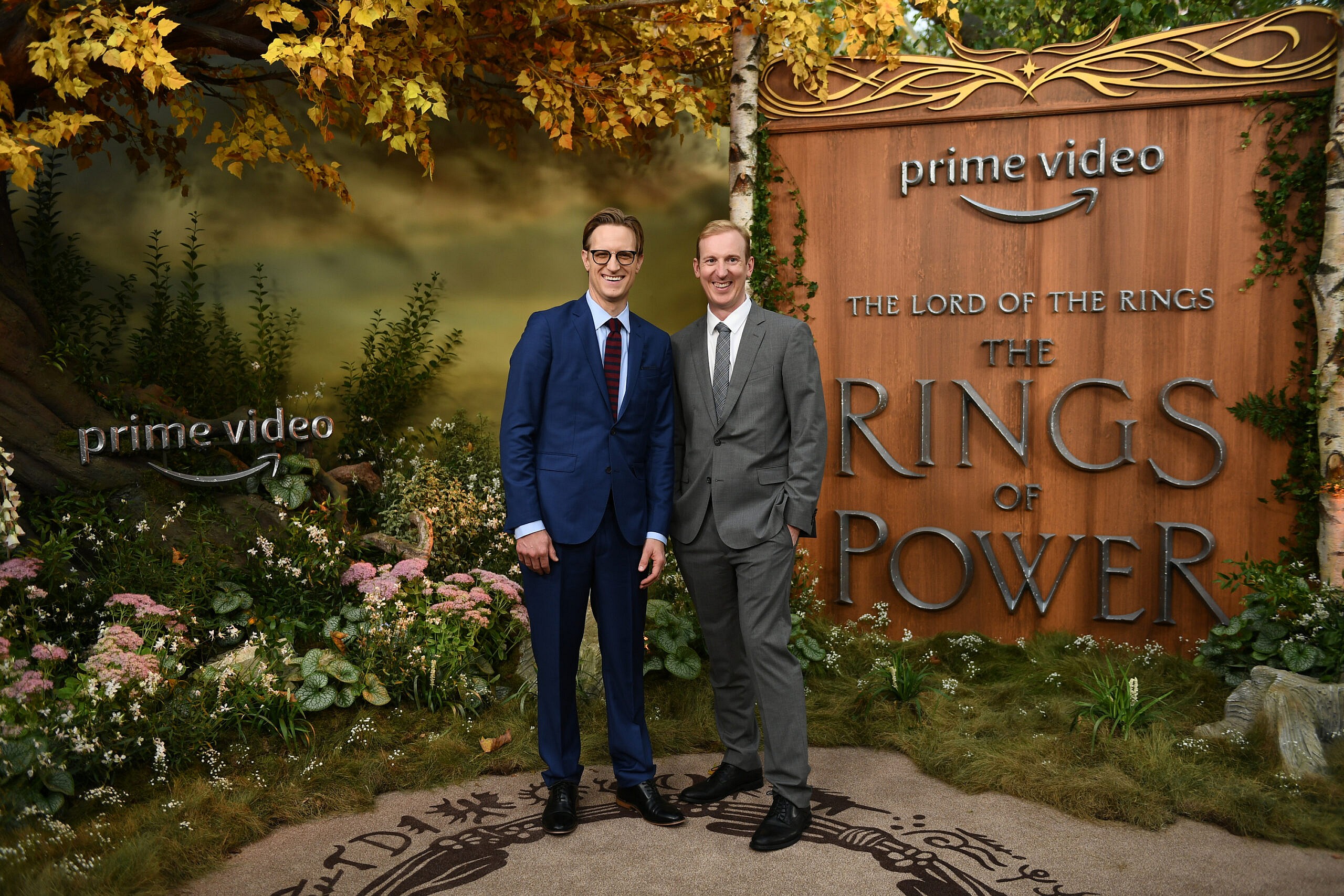
Talking to The Hollywood Reporter, showrunners JD Payne and Patrick McKay were confronted with criticism of Galadriel noting she “acts too masculine and she never went to Númenor.”
Payne responded, “I would love to see in Tolkien where it says Galadriel never went to Númenor — that doesn’t exist.”
He added, “Second, one of her nicknames is ‘Nerwen,’ which means ‘man-maiden.’ And third, she does not act masculine!”
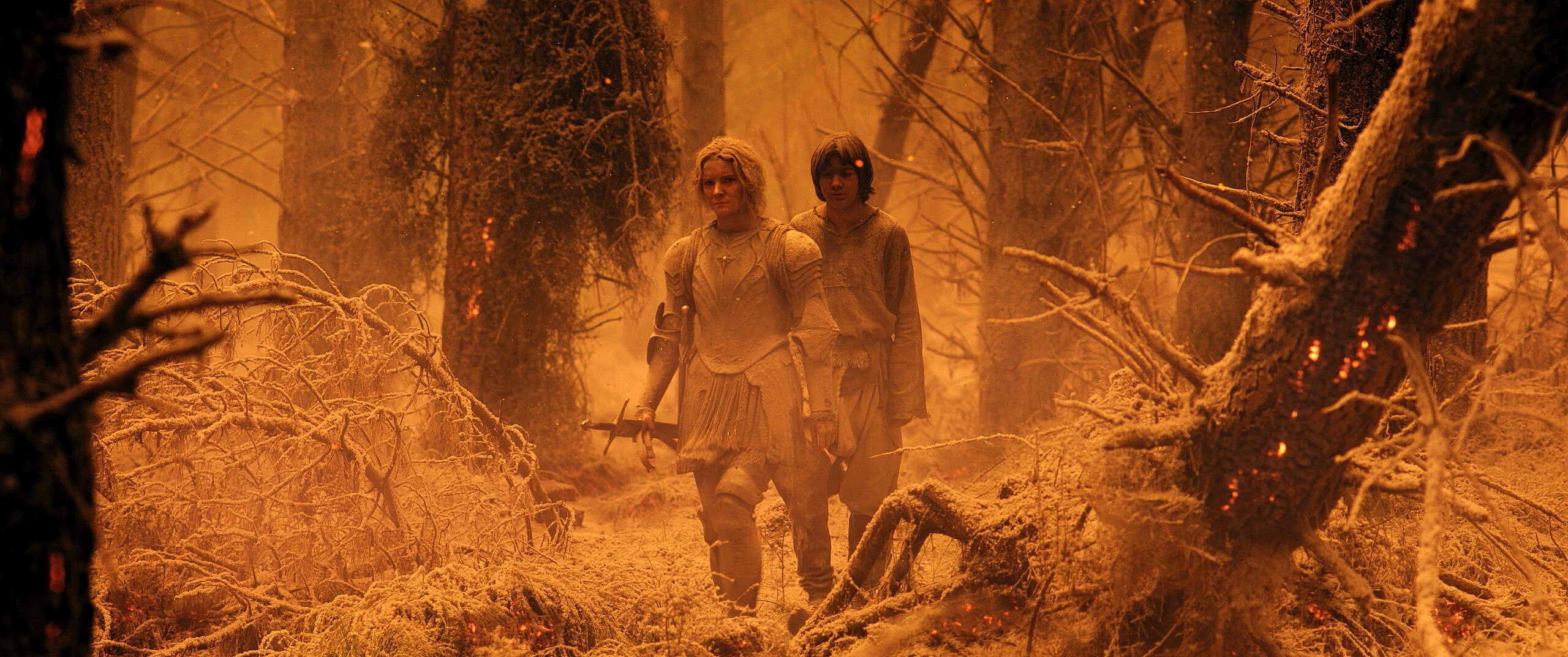
McKay offered his own answer writing, “Also, the name ‘Galadriel’ is loosely translated in Elvish as a maiden with a crown of golden hair. The reason she had a crown of golden hair is because when she would fight and do all sorts of sparring with other elves … she would braid her hair and put it up on top of her head [to stay out of the way].”
“So in the etymology is the idea that Galadriel is a warrior,” he asserted.
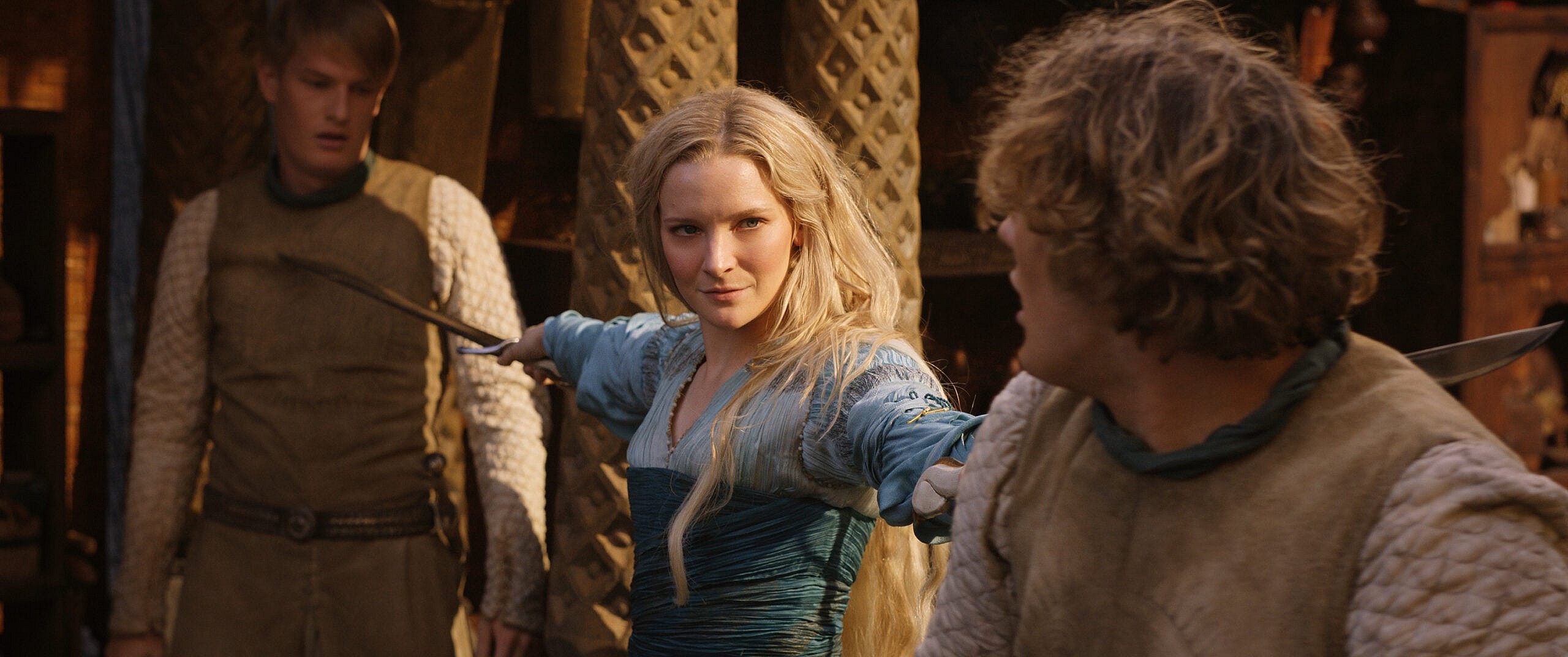
Payne’s defense of having Galadriel go to Númenor clearly shows he does not have any respect for Tolkien. In Letter 131 to Milton Waldman, Tolkien clearly laid out his three themes of the Second Age.
He wrote, “The three main themes are thus The Delaying Elves that lingered in Middle-earth; Sauron’s growth to a new Dark Lord, master and god of Men; and Numenor-Atlantis. They are dealt with annalistically, and in two Tales or Accounts, The Rings of Power and the Downfall of Númenor. Both are the essential background to The Hobbit and its sequel.”
Speaking specifically on the Downfall of Númenor, Tolkien wrote, “The Downfall of Númenor, the Second Fall of Man (or Man rehabilitated but still mortal), brings on the catastrophic end, not only of the Second Age, but of the Old World, the primeval world of legend (envisaged as flat and bounded).”
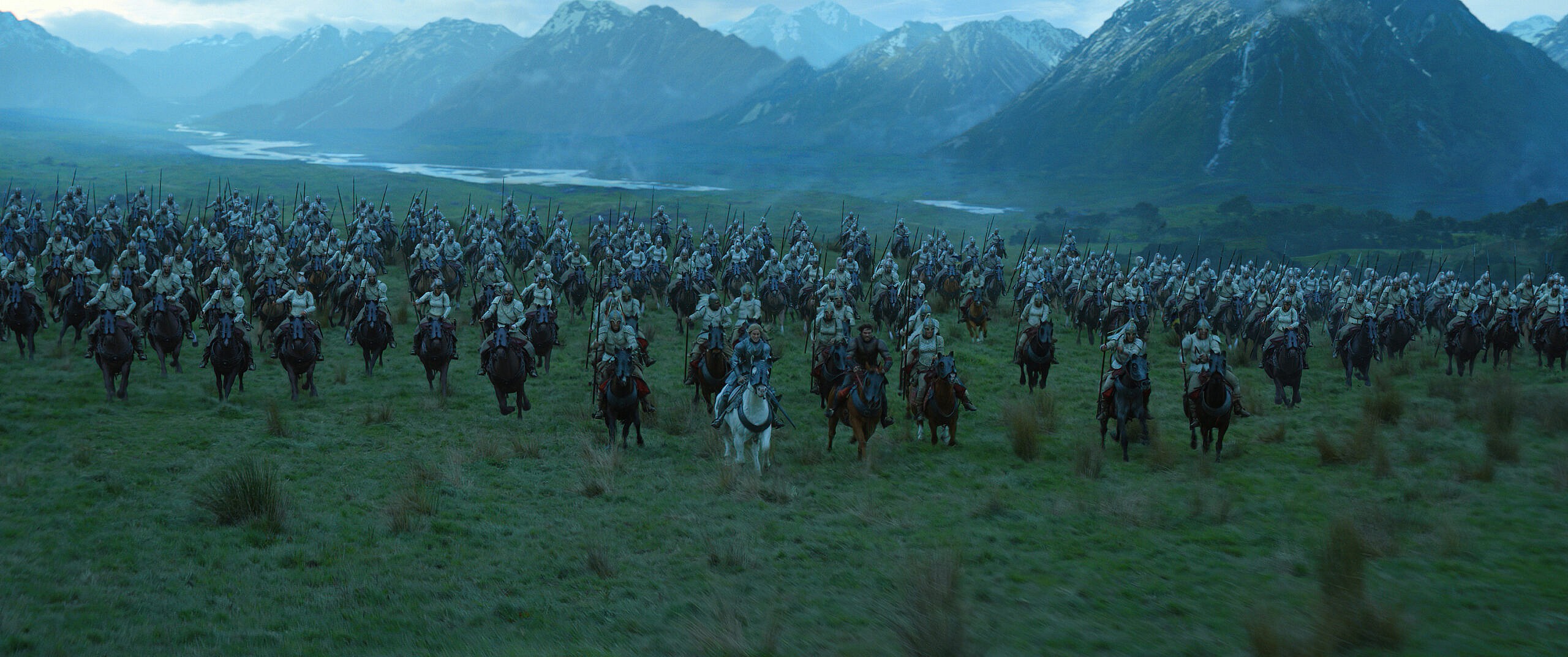
He goes on to make it clear it’s about Men not Elves, “The Downfall is partly the result of an inner weakness in Men – consequent, if you will, upon the first Fall (unrecorded in these tales), repented but not finally healed. Reward on earth is more dangerous for men than punishment! The Fall is achieved by the cunning of Sauron in exploiting this weakness. Its central theme is (inevitably, I think, in a story of Men) a Ban, or Prohibition.”
Albeit Tolkien does note the Númenoreans are “in constant communication with their ancient friends and allies, either in the bliss of Eressea, or in the kingdom of Gilgalad on the shores of Middle-earth.” The show clearly does not show this and instead indicates the Númenoreans have cut off communication with the Elves.

In The Silmarillion, Galadriel is not referenced in the tale of the Downfall of Númenor or Akallabêth. However, she is referenced in The Rings of Power story at the conclusion of the book.
However, even in that story, she’s not mentioned until the end when Tolkien revealed that Círdan informs her and Elrond about the arrival of the Istari. She also joins the White Council alongside Elrond, Círdan, and a number of other Eldar lords alongside Mithrandir and Saruman the White.
If Tolkien would have thought to include Galadriel in the Downfall of Númenor one would have thought he would have done so. He did not. Instead he does have her meeting with Númenoreans specifically King Aldarion when he journeyed to Tharbad in the story of “Aldarion and Erendis: The Mariner’s Wife.”
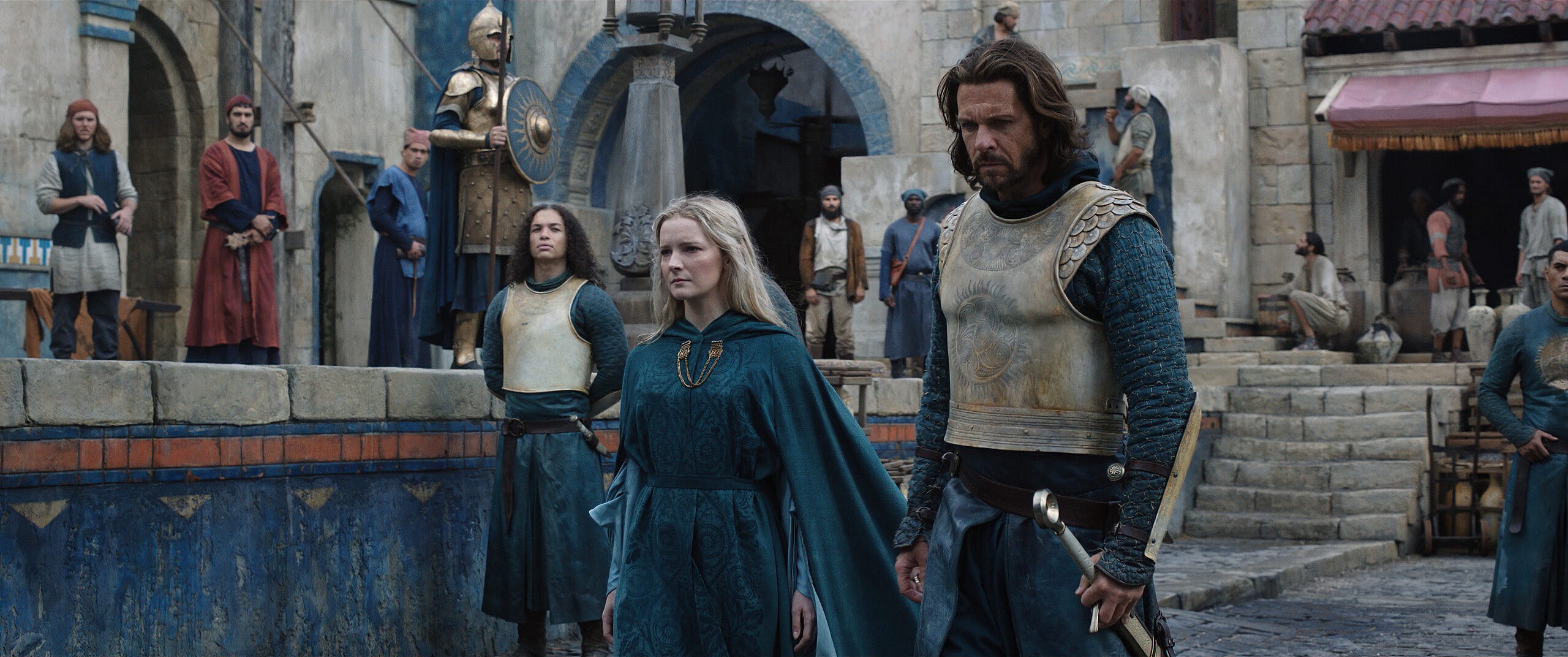
As for Payne’s comments about Galadriel’s name, in The Peoples of Middle-earth, Christopher Tolkien detailed, “Her mother-name was Nerwen ‘man-maiden’ and she grew to be tall beyond the measure even of the women of the Noldor; she was strong of body, mind and will, a match for both the loremasters and the athletes of the Eldar in the days of their youth.”
Clearly the name is in reference to her size as well as her athletic and intellectual prowess rather than any kind of masculinity.
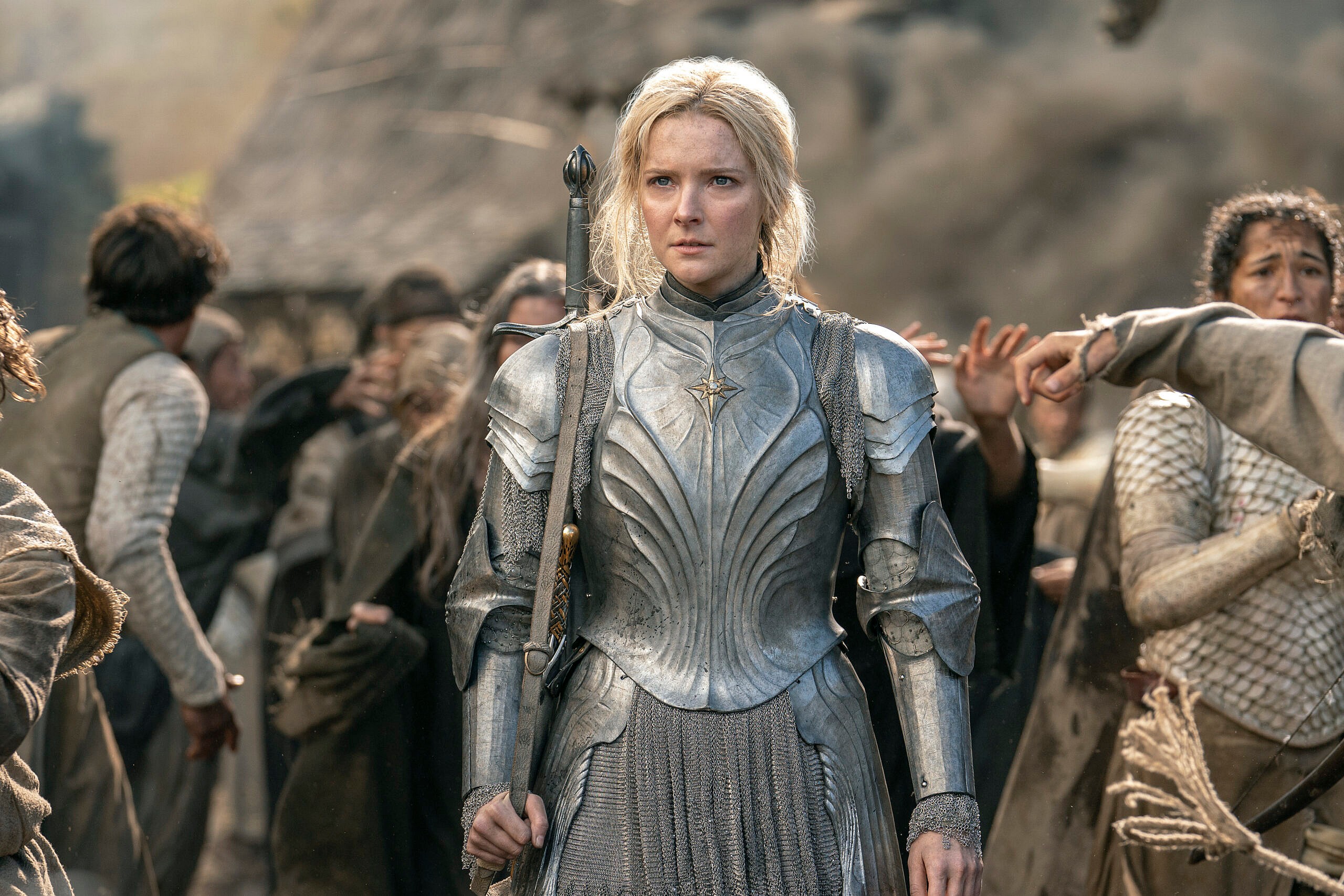
As for Payne’s claim that she does not act masculine, let’s examine it. First, let’s define what masculinity is. Father Scott Bailey in Denver Catholic puts it pretty succinctly, “The design of God for masculinity begins to emerge: true men — masculine men — know how to work, to be generous, to protect, to lead by example, and to be selfless. It’s not actually about action movies, hunting, explosives, beer, cool cars, power tools or beards.”
Father Bailey adds, “It all comes down to being a strong leader. And not the kind who is a jerk and just tells others what to do. That’s not real masculinity — at least not the way God designed it. It is about leading by example. It is about laying down your life for someone else. Like Jesus did.”
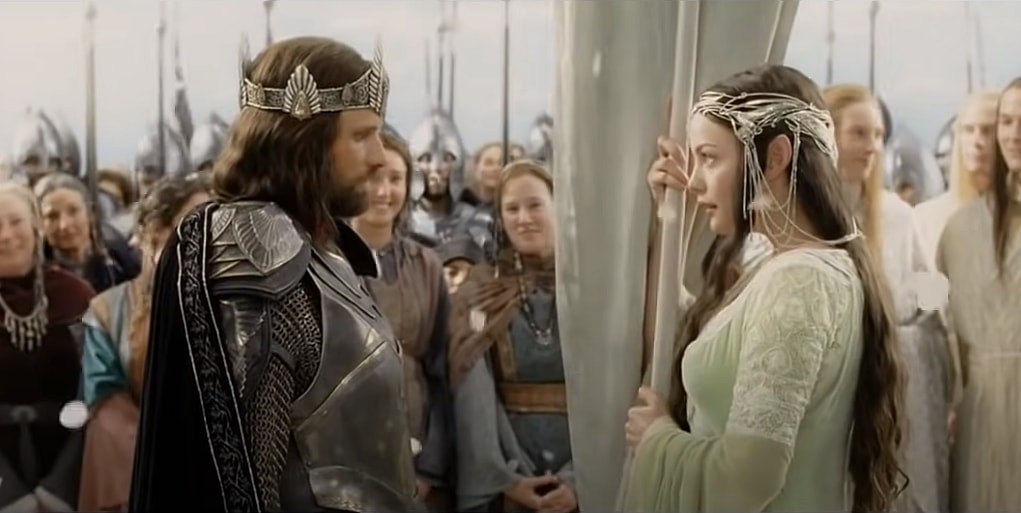
Galadriel’s depiction in The Rings of Power does indeed show she knows how to work as she does to pursue Sauron. However, she’s a poor leader. Her men abandon her. She’s willful and impulsive and acts like a jerk quite a bit not only in her interactions with Elrond, but also with Miriel.
So far in the show, it’s also hard to see Galadriel as someone who wants to protect others. Her motivation does seem to be about vengeance for her brother despite her words to the contrary. Her actions contradict her words. She also clearly manipulates Halbrand in order to get him to do what she wants rather than inspiring him to do what is just and right. She’s thinking about herself first rather than what Halbrand might be thinking.
In one sense Payne is right, Galadriel is not masculine. However, she does exhibit traits of a warped masculinity. She’s a narcissist. She’s mean. And above all she rejected the peace of Valinor.
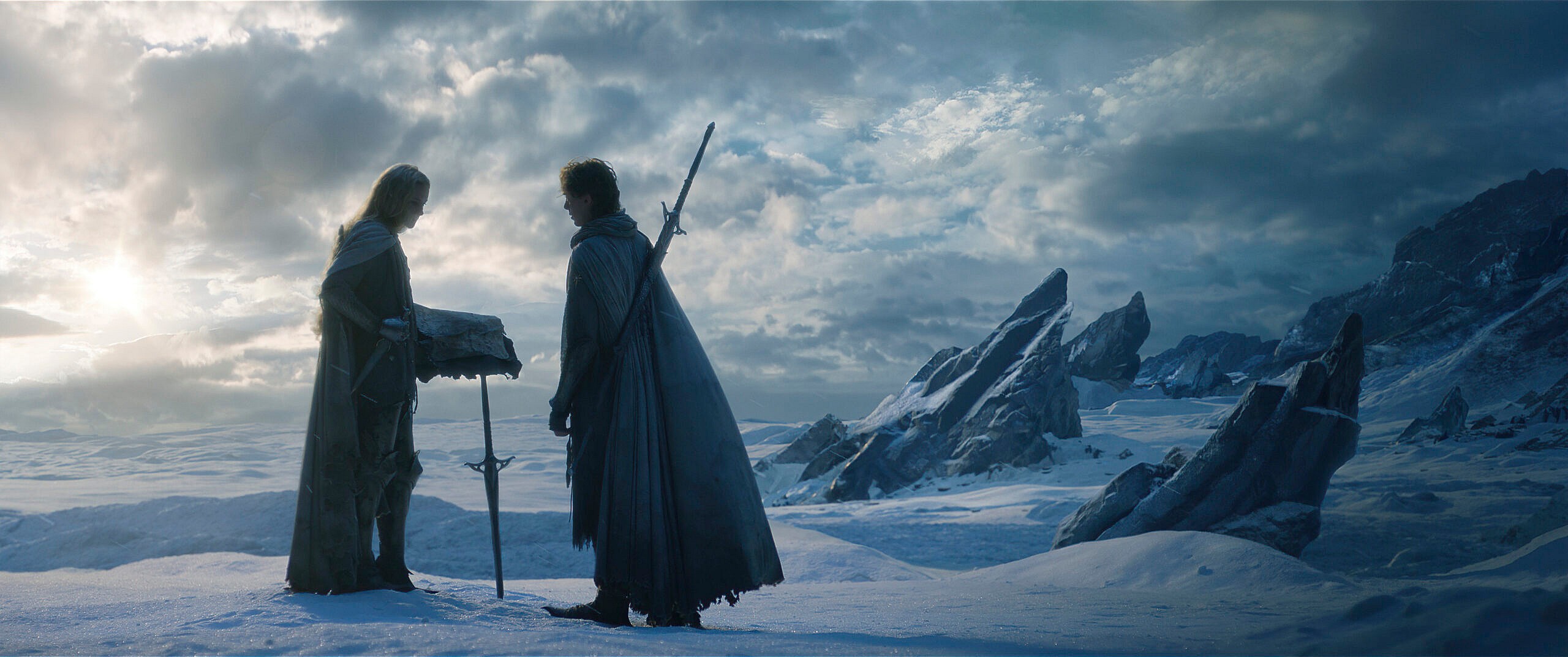
As for McKay, he just straight up provides a completely definition to the one Tolkien gives. In The Silmarillion, Tolkien Tolkien explains the meaning of kal- (gal-).
He writes, “This root, meaning ‘shine’, appears in Calacirya, Calaquendi, Tar-calion; galvorn, Gil-galad, Galadriel. The last two names have no connection with Sindarin galadh ‘tree’, although in the case of Galadriel such a connection was often made, and the name altered to Galadhriel. In the High-elven speech her name was Al(a)táriel, derived from alata ‘radiance’ (Sindarin galad) and riel ‘garlanded maiden’ (from a root rig- ‘twine, wreathe’): the whole meaning maiden crowned with a radiant garland’, referring to her hair.”
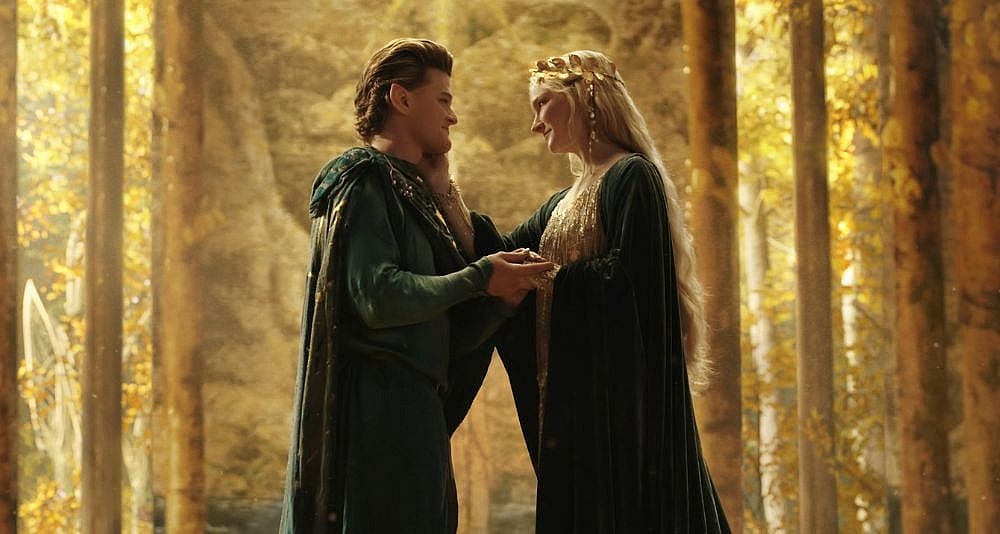
In Letter 348 to Mrs. Catharine Findlay, Tolkien further noted, “Galadriel, like all the other names of elvish persons in The Lord of the Rings, is an invention of my own. It is in Sindarin form (see Appendices E and F) and means ‘Maiden crowned with gleaming hair’. It is a secondary name given to her in her youth in the far past because she had long hair which glistened like gold but was also shot with silver. She was then of Amazon disposition and bound up her hair as a crown when taking part in athletic feats.”
As you can see it has nothing to do with sparring, but more to do with athletic feats. On top of that nowhere is there the idea that she is a warrior.
That’s like saying Venus and Serena Williams are great warriors because they have accomplished great feats in tennis. Is it possible? Sure. Is the idea that because they are good at tennis means they are warriors? No.
It’s also interesting that the show doesn’t even put her hair up in a crown while she’s acting like a warrior.

Payne and McKay are desperate for people to buy into their version of Tolkien. Unfortunately for them Tolkien wrote extensively about his works and his own words rebuke Payne and McKay as they attempt to retcon Tolkien’s legendarium through the abomination that is The Rings of Power.
